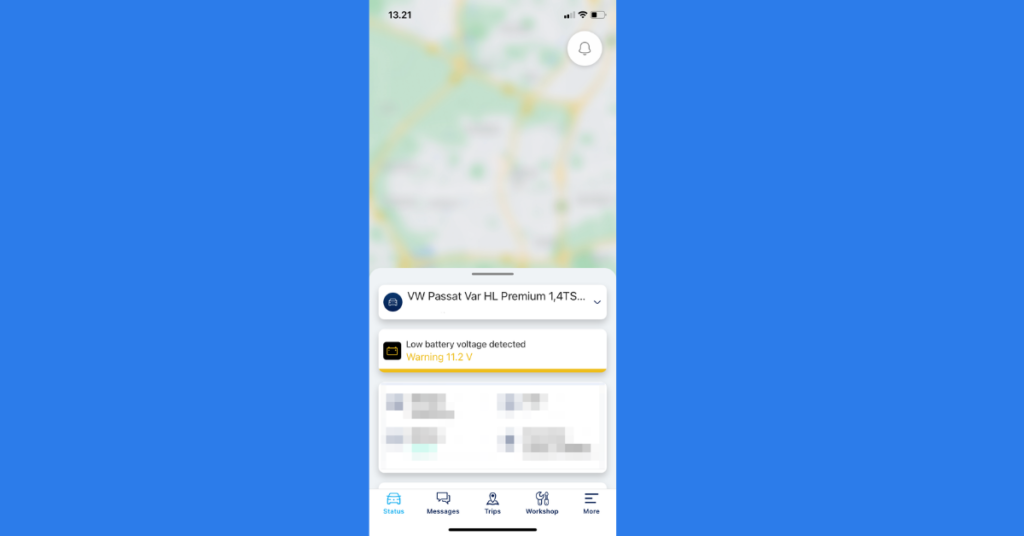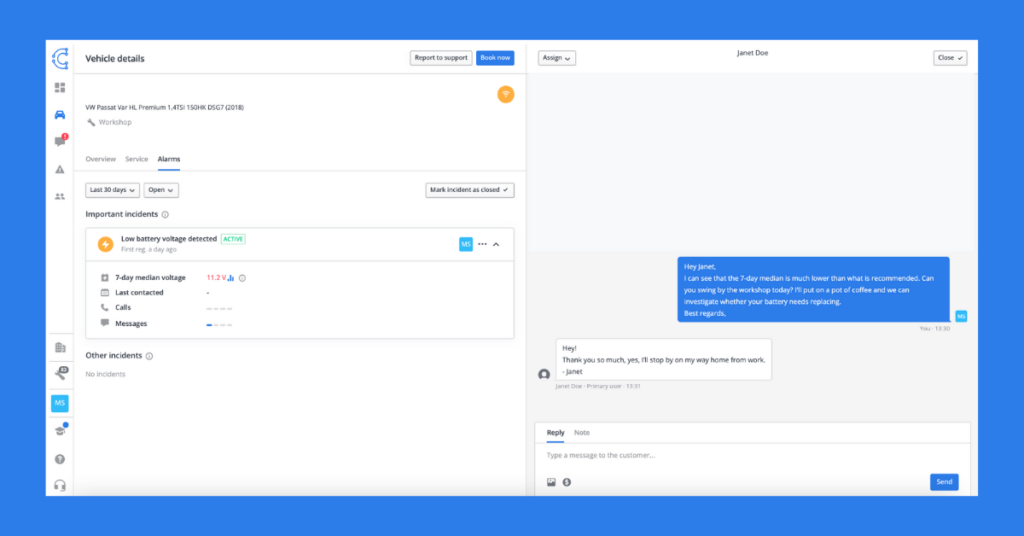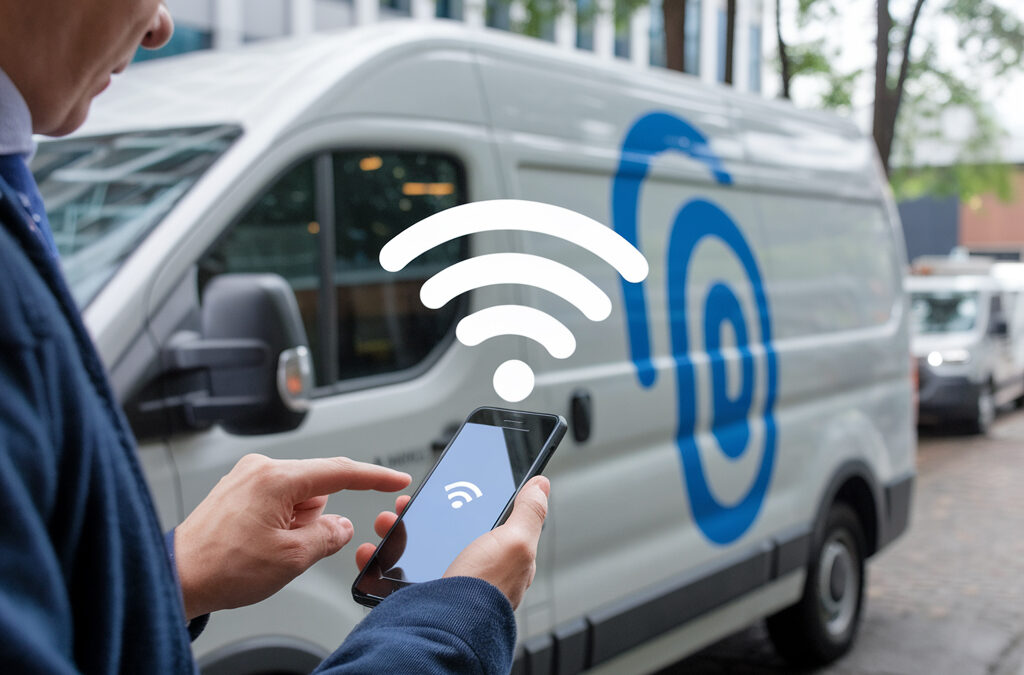Battery issues happen from time to time in cars. However, it’s an issue that can be proactively addressed with detailed data monitoring. The problem is that workshops are rather reactive when it comes to car diagnostics. Typically, a car owner realizes that there’s a battery issue when they are unable to start the car. But these issues can differ from car to car. Thanks to our constantly evolving car data, our data scientists, CAN-bus experts, and valuable feedback from workshops using Connected Cars, we implemented our new ‘Low battery voltage’ lead. Here’s what you need to know about it.
The differences between battery voltages


What’s new
This new lead is evaluated for all cars that have been out-driving within the last 7 days. Out of these cars, only those with a median voltage while not driving below 12.2V over the last 7 days are shown. The data is updated once a day.
The fact that a car receives a low-voltage lead doesn’t necessarily mean that the battery is broken. It can happen if the car is not driven enough or has many short trips. It can happen due to equipment drawing power such as dash cams or fridges that can draw power while parked. In many cases, the problem can be mitigated by driving a longer trip or attaching a charger to the car’s battery. If the problem persists after several long trips and/or charging events, the workshop can suggest an on-site car inspection.
Why is this important?
Since workshops can see the battery’s health they can be proactive with the customer when the battery needs fixing. With this proactive approach, workshops can always be there for their customers, building trust and providing a better service experience. Additionally, this proactive approach will prevent customers from getting stuck on the road or being unable to start their cars due to a faulty battery.
How can you access the lead?
You can easily access it from the Connected Cars Dashboard within the ‘Leads’ section. When clicking on it you can see in detail all cars’ battery health, and take direct action. You can send customers a message straight to their App as well as send quotes, and book appointments. You can also see the estimated monetary value of all the leads, so you’ll be able to see the tangible results of your work.


What long-term benefits will it bring to a workshop?
By taking action on these leads, workshops can fix issues before a major problem happens. In this case, being unable to start the car or getting stuck on the roadside due to a faulty battery. The process from a service advisor’s/manager’s perspective is very easy, just taking a few clicks to reach out to a customer and seal a deal. What we already see from workshops is that they can increase their bookings, and revenue and with a proactive attitude, their customers’ satisfaction. Especially in the winter times, the number of battery issues is significantly more, so it’s worth putting more focus on this area of car servicing.







